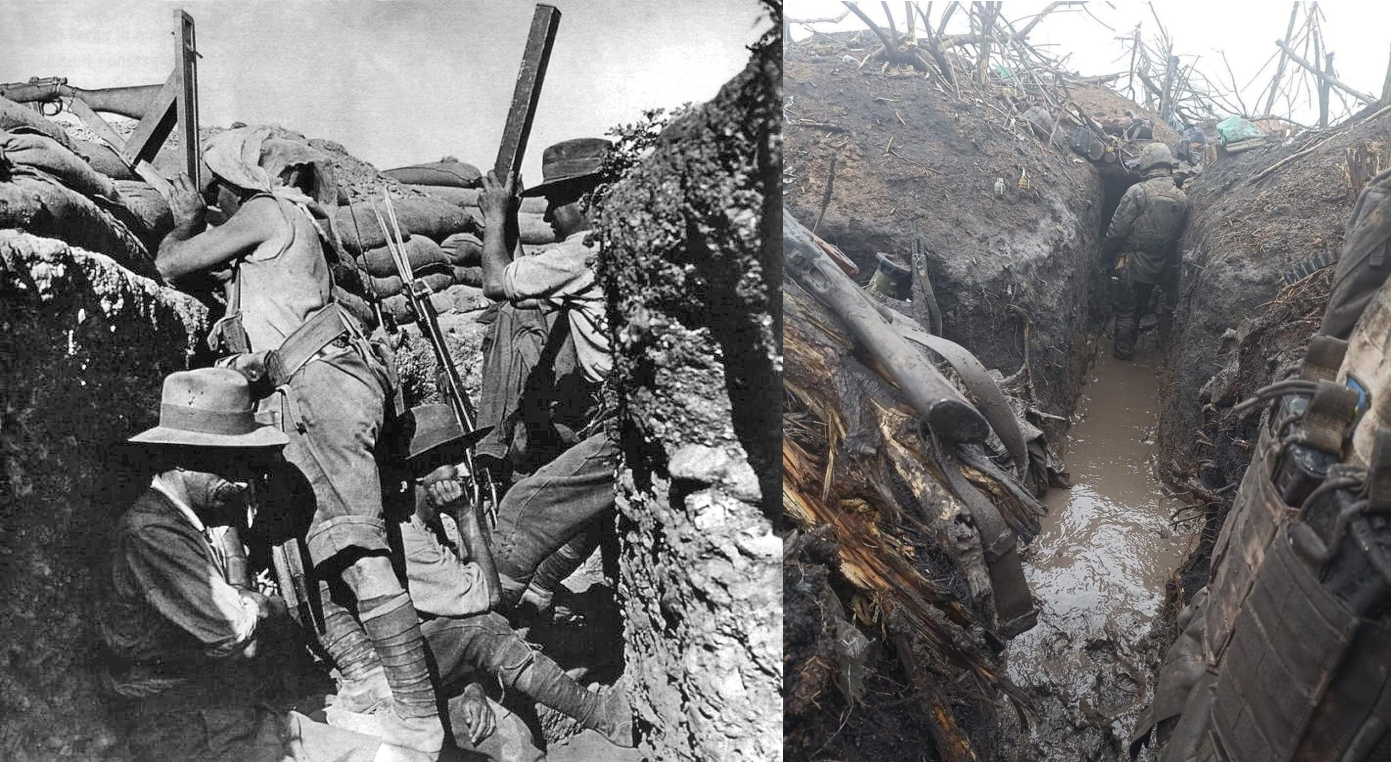We’re Reliving The Beginnings Of WWI And Just Don’t Realize It Yet
Published: 22 April 2023
By Erik Brown
via the Medium.com web site

Reliving The Beginnings Of WWI
Left: Australian Soldiers In Trench At Gallipoli (1915) — By Ernest Brooks Via Wikimedia Commons / Right: Ukrainian Soldier In Trench (2022) — By Viktor Borinets Via Wikimedia Commons
Great changes in science and technology, globalization, and a belief the world is too economically linked to go to war
“Now, as then, the march of globalization has lulled us into a false sense of safety. Countries that have McDonald’s, we are told, will never fight each other.”
— The Rhyme of History: Lessons From The Great War, Margaret McMillan
History doesn’t exactly repeat. It’s more like one of those songs you sort of know the words to and flub the lyrics while you sing along. Hence the chorus and beat stay the same, but with random surprises.
I thought of this as I read Margaret McMillan’s work above, which compares the years before World War I with modern times. While not an exact repeat, the chorus and beat come damn close.
For instance, before The Great War she notes it was a time of globalization with tight economic ties and trade. Not to mention mass migration, along with great improvements to tech, communication, and transportation.
- Einstein was formulating his theory of general relativity.
- Steamships, trains, telegraphs, and the first airplanes appeared.
- Many parts of the “separate” world were now connected.
McMillan notes one of the most popular books of 1909–10 was The Great Illusion by Norman Angell.
In it, he said global war was impossible. The world’s economy was too tightly linked by trade and commerce, so it would be against everyone’s national interest. Plus, even if war broke out, it would be short, because a long-scale war couldn’t be funded.
Don’t snicker just yet. According to McMillan there were recent disarmament conferences at the Hague, and more than three hundred arbitrations occurred between nations through 1794 and 1914. Moreover, the last major conflict was the Napoleonic Wars in 1815.
Humanity evolved away from mass conflict, or so they believed. About seventy years after The Great Illusion, Francis Fukuyama penned the essay, then book The End of History and the Last Man. Here he mimics Angell’s 1909 optimism.
1989–1992 marked the end of Communism. Liberal-Western democracies were the standard now, and all would copy them. War may come. But it wouldn’t be among the enlightened. Everything was marching to a global order: free markets and democracy.
And many instinctively echoed Angell or Fukuyama, until tanks rolled over Ukraine’s border. But McMillan says this isn’t the only similarity.
Read the entire article on the Medium web site.
External Web Site Notice: This page contains information directly presented from an external source. The terms and conditions of this page may not be the same as those of this website. Click here to read the full disclaimer notice for external web sites. Thank you.



